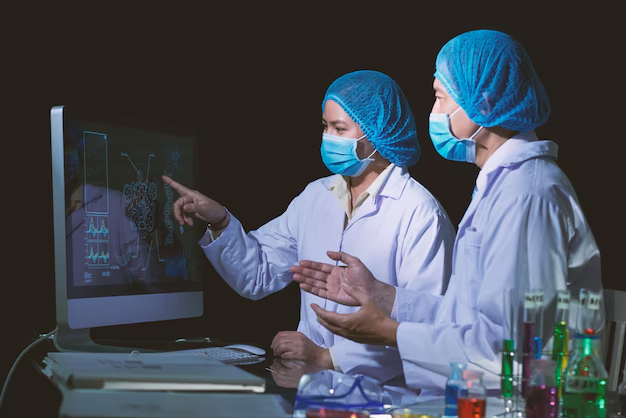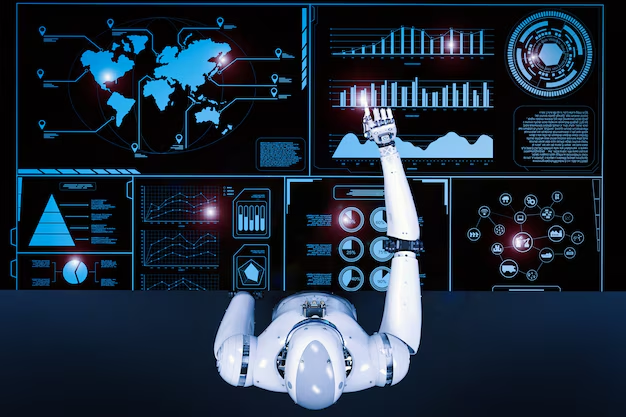Introduction: The rapid advancement of robotics and automation technologies is transforming industries and everyday life in unprecedented ways. As robots become more integrated into various sectors, they’re revolutionizing how we work, interact, and live. From Future Of Robotics manufacturing to healthcare, robotics promises to shape the future of our world, creating efficiencies, enhancing capabilities, and even sparking new possibilities for innovation. In this article, we’ll explore the ways automation is shaping the future and what it means for businesses, workers, and society at large.
1. The Rise of Automation in Industries
How Robotics is Transforming Manufacturing: Automation through robotics has been a game-changer in manufacturing industries. Robots have been deployed in factories for years, but their capabilities are growing rapidly. Today, industrial robots can perform complex tasks such as assembling products, packaging, and even quality control with greater precision and speed than human workers.
Key Benefits of Robotics in Manufacturing:
- Increased Efficiency: Robots can work 24/7 without the need for breaks, improving overall production efficiency.
- Enhanced Precision: With advanced sensors and AI integration, robots ensure high-quality and consistent output.
- Cost Reduction: Though the initial investment in robotics may be significant, long-term savings from reduced labor costs and improved productivity are undeniable.
Future of Robotics in Manufacturing: As AI and machine learning continue to evolve, robots will be able to make real-time decisions, improving the adaptability of production lines and allowing for more customization and flexibility in manufacturing.
2. Robotics and Healthcare: A New Era of Medicine

The Impact of Robotics on Healthcare: The healthcare industry is experiencing a revolution due to robotics, with robots enhancing both the quality and accessibility of care. Robotic systems are now being used for minimally invasive surgeries, robotic-assisted rehabilitation, and even remote patient monitoring.
How Robotics Improves Healthcare:
- Precision in Surgery: Robotic-assisted surgeries allow for greater precision, reducing human error, and improving patient outcomes.
- Remote Surgery: With telemedicine and robotic systems, surgeons can operate on patients from different parts of the world, making healthcare more accessible, especially in underserved regions.
- Assisting the Elderly: Robots are helping care for the elderly by assisting with mobility, offering companionship, and helping monitor vital signs.
The Future of Robotics in Healthcare: In the coming years, advancements in AI will enable robots to provide personalized care and predict health trends, improving disease prevention and enabling earlier interventions for a healthier population.
3. Robotics in the Workplace: Enhancing Productivity and Safety
How Robots are Transforming the Workplace: In workplaces across various sectors, robots are enhancing productivity by automating routine tasks, such as data entry, inventory management, and customer service. This frees up human workers to focus on more complex, creative tasks that require emotional intelligence, problem-solving, and strategic thinking.
The Benefits of Robots in the Workplace:
- Safety: Robots can perform hazardous tasks such as lifting heavy objects or working in dangerous environments, reducing workplace injuries.
- Higher Productivity: Automation streamlines tasks, allowing businesses to produce more in less time.
- Labor Shortages: Robotics can help address workforce shortages, particularly in industries such as logistics, where there is a growing need for labor.
The Future of Robotics in the Workplace: As robots become more adept at working alongside humans, collaboration between human workers and robotic systems will increase. The development of collaborative robots (cobots) will enhance workplace productivity while reducing the strain on human employees.
4. Robotics in Daily Life: Making Everyday Tasks Easier
Robots at Home: Robotics is gradually making its way into our daily lives, with household robots like vacuum cleaners and lawnmowers now common in many homes. These robots handle everyday tasks, allowing people to spend more time on what matters to them.
How Robotics Enhances Daily Life:
- Time Savings: Robots handle repetitive chores, freeing up time for individuals to engage in other activities.
- Convenience: From cooking assistants to smart home devices, robots make everyday living easier by performing simple tasks with precision.
- Personalized Assistance: Robotic systems that learn user preferences and habits will help create more personalized experiences, whether it’s in entertainment, cleaning, or even home security.
The Future of Robotics at Home: In the future, robots will become even more integrated into households, capable of carrying out more complex tasks such as caregiving, meal preparation, and advanced home automation.
5. Ethical Considerations in Robotics and Automation
Addressing the Ethical Impacts: As robotics continues to advance, there are growing concerns about its ethical implications. The rise of automation could lead to job displacement, privacy concerns, and potential misuse of technology. It is crucial for businesses, governments, and society to address these challenges to ensure that the benefits of robotics are shared fairly.
Key Ethical Challenges:
- Job Displacement: As robots take over repetitive tasks, there is a concern about workers losing their jobs. Society must prepare for this shift by investing in education and retraining programs.
- Privacy and Security: With AI-powered robots becoming more integrated into our lives, safeguarding personal data and ensuring privacy is a critical issue.
- Autonomous Weapons: The use of robotics in military applications raises ethical concerns about autonomous weapons and their potential for misuse.
The Future of Ethics in Robotics: As the technology advances, it will be essential to create frameworks for ethical robotics development, ensuring that robots are used for the benefit of society while minimizing negative consequences.
6. The Future of Robotics in Transportation
Self-Driving Cars and Delivery Robots: One of the most significant innovations in robotics is the development of autonomous vehicles. Self-driving cars and delivery robots have the potential to transform the transportation industry, making travel safer, faster, and more efficient.
Benefits of Robotics in Transportation:
- Improved Safety: Autonomous vehicles have the potential to reduce accidents caused by human error.
- Efficiency: Self-driving cars can optimize routes in real-time, reducing traffic congestion and lowering fuel consumption.
- Accessibility: Robotics can make transportation more accessible for people with disabilities, the elderly, and those who cannot drive.
The Future of Robotics in Transportation: The future of robotics in transportation is bright, with advancements in autonomous vehicles, drones, and delivery systems expected to reduce costs and improve overall efficiency.
Conclusion: A World Shaped by Robotics and Automation
The future of robotics is incredibly promising. Automation and robotics technologies are reshaping industries, improving healthcare, enhancing daily life, and transforming the workforce. While challenges remain, particularly regarding ethics and employment, the continued development of these technologies will inevitably lead to a smarter, more efficient, and interconnected world. As we advance further into the 21st century, robotics will continue to play a key role in creating a more sustainable and innovative future.
SEO Keywords to Include: future of robotics, automation technology, robotics in manufacturing, robotics in healthcare, robotics in daily life, ethical implications of robotics, AI and robotics, self-driving cars, autonomous vehicles, job displacement and automation, robotic systems, industrial robots, AI-powered robots, robotic assistants, robotics in transportation, robotics and society, future trends in robotics, robotics and automation in business, impact of robotics on the workforce, robotics and innovation, healthcare robotics, robotics in home automation, robotics and ethics, robotics for productivity, robotics in education, robotics technology advancements, impact of automation, robotics in the workplace, future of autonomous robots, intelligent robotics systems.

